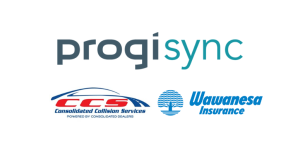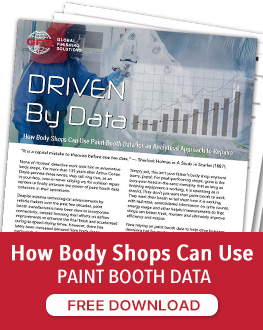By Jeff Sanford
Toronto, Ontario — November 7, 2017 — This week’s Tuesday Ticker: Fenix reports increased revenues, AkzoNobel and Axalta announce they are in merger talks, oil prices rise on Saudi palace intrigue and much, much more!
Analysts are trying to figure what’s going on in the Saudi Royal Court. The up-and-coming new young prince arrested almost a dozen long-serving members of the regime. A helicopter accident killed another member of the regime. One prince was shot in a firefight as security forces attempted to arrest him. Over the last few weeks it has also been reported that critics of the regime have disappeared from various cities. The Shia-aligned rebels in Yemen also lobbed a missile at Riyadh. The Saudis assumed the rocket came from Iran. In North America analysts wonder what it all means. The internal politics of the Saudi regime are opaque to outsiders. Some worry that the launching of the missile will lead to a regional war between Iran and Saudi Arabia, long-time declared enemies. No wonder then that Monday morning stocks retreated from record highs. One of the princes arrested is a major holder of western stocks. Some of the names he was most heavily invested in have seen the biggest declines.
The price of oil has also advanced as a result of the chaos in the kingdom. Some analysts predict that the purge could solidify the authority of the incoming regime. The incoming crown prince has promised to modify the regime and steer the kingdom toward a more moderate form of Islam. This would be a good outcome according to the analyst. The other possibility is that the crown prince has indulged an inherent impulsiveness and stumbled into another disaster (such as the attack on Yemen). Analysts are already talking about a higher oil price in 2018. Prices could hit $70 a barrel for West Texas Intermediate as global demand rises and production falters, reversing the current state of oversupply in the market. If the Saudi regime implodes one has to assume the price of crude will go higher. Many analysts are already talking about the potential that gasoline could rise another $1.00 a gallon above the current price of $2.50 or so a gallon. Such a price would also crimp consumption. The number of miles driven would decline. Retail sales would also decline. The value of stock indexes would presumably decline from current record highs.
On the other hand, there are many others who are more optimistic. A high-profile New York-based hedge fund manager David Einhorn, CEO of Greenlight Capital, recently offered up a theory for why it is technology stocks will continue to do well. He recently speculated that stock markets seem to, “… have adopted a new way or ‘alternative paradigm’ for calculating the value of stocks.” Traditionally investors have applied a ‘value-based’ approach to investing (this is Warren Buffett’s approach). The idea is simple: Investors search out imperfections in the relative pricing of companies. Investors find a company that is producing results that are better than the value reflected in the stock price. Investing in that company will result in gains as eventually market dynamics ensure that the stock’s price will rise to reflect the true value of the company’s financial situation (based on earnings).
Einhorn suggests the stock market may not be working like it used to, that the market is at a unique point in history. In a recent letter to shareholders he wrote, “The market remains very challenging for value investing strategies… Given the performance of certain stocks, we wonder if the market has adopted an alternative paradigm for calculating equity value. What if equity value has nothing to do with current or future profits and instead is derived from a company’s ability to be disruptive, to provide social change, or to advance new beneficial technologies, even when doing so results in current and future economic loss?”
That is, as the broad-based digitization of the economy goes on, as the Internet of Things emerges along with the new world of AVs emerges, the companies building this new economy are being favoured by investors. Google and Amazon are emerging as the mighty corporate giants of the next economy. Investors keep buying their stock even though the shares are expensive. This makes sense, however. As the brick and mortar retail sector burns down in a shift away from in-store shopping (Sears is an example) it makes sense to invest in the companies that will be the ones to lead in the next economy.
Einhorn’s ideas found some confirmation in recent events. As earnings season got underway. Google’s parent company Alphabet, along with Facebook and Amazon, reported earnings that blew away estimates. Shares in Alphabet are now trading above $1000 per share, while Amazon was trading around $970. The new world of artificial intelligence, automated vehicles and the Internet of Everything is beginning to emerge. Let’s hope the chaos in the old oil economy (Saudi Arabia) doesn’t limit the progress.
AkzoNobel/Axalta
AkzoNobel and Axalta Coating Systems announced Monday they are officially in talks to join forces in a merger. AkzoNobel would have to sell of its chemical division first, as already announced. Back in 2013 private equity group Carlyle bought Axalta from DuPont. The company overhauled the management team, introduced efficiencies and then sold off Axalta in an initial public offering. Shares in the company rose until about 2015, but have been trading sideways since then. But the recent news of the possible merger has seen Axalta shares soar 22 percent since the tie-up was announced (even as Axalta reported less than stellar third quarter financials).
GPC
Genuine Parts Company announced that it has completed the purchase of Alliance Automotive Group, a major European auto parts distributor. The total price was about USD $2 billion, including the repayment of AAG’s outstanding debt. The debt has been paid off. AAG, the second largest parts distributor in Europe, is now a part of GPC (the parent company of NAPA).
Fenix Parts
Fenix Parts has just filed its latest financials. The company, born out of a merger of east coast recyclers, has had a rough year and a half since it went public. But while the company is still registering losses, there is some good news in the latest filing. According to the latest financial reports, net revenues increased by 3 percent to $34.1 million as compared to fourth quarter of 2016. Compared to net revenues for the first quarter of 2016 the increase from $32.2 million represents a 6 percent advance. As well, sales of recycled OEM products were $29.2 million for the first quarter of 2017, up slightly from $29.1 million in the fourth quarter of 2016 and an increase compared to $28.3 million in the first quarter of 2016. Sales of scrap metal from recycled cars advanced on the back of increases in the underlying price of steel. The company pulled in $4.9 million in the first quarter of 2017 from sales of scrap metal. This is compared to $4.1 million in the fourth quarter of 2016, and $3.9 million in the first quarter of 2016. Total net revenues (including scrap) from the company’s Canadian operations were $4.7 million in the first quarter of 2017, compared to $3.5 million for the fourth quarter of 2016 and $4.1 million in the first quarter of 2016.
Boyd
Boyd Group Income Fund announced today that it has completed the early redemption and cancellation of debt issues that had a 5.25 percent interest rate attached and were not due until October 31, 2021. The early repayment is a sign that business is good at Boyd.
Related Market Notes
Is the recent boom in the Canadian economy already over? Economist have been surprised by the recent strong growth in the Canadian economy. The latest numbers suggest the good times have reversed direction. According to Statistics Canada, the latest government stats show that gross domestic product in this country unexpectedly contracted in August. It was only in June that the economy seemed to be expanding at a rapid rate. Since then growth has tumbled and is now actually contracting. If the contraction continues in September’s third-quarter, annualized growth could come in below 2 percent. That would represent a significant decline from the 4.5 percent annualized growth in the second quarter of this year. The Bank of Canada is predicting 1.8 percent in the third quarter. Economists employed by banks expect 2.1 percent growth in the quarter.





































